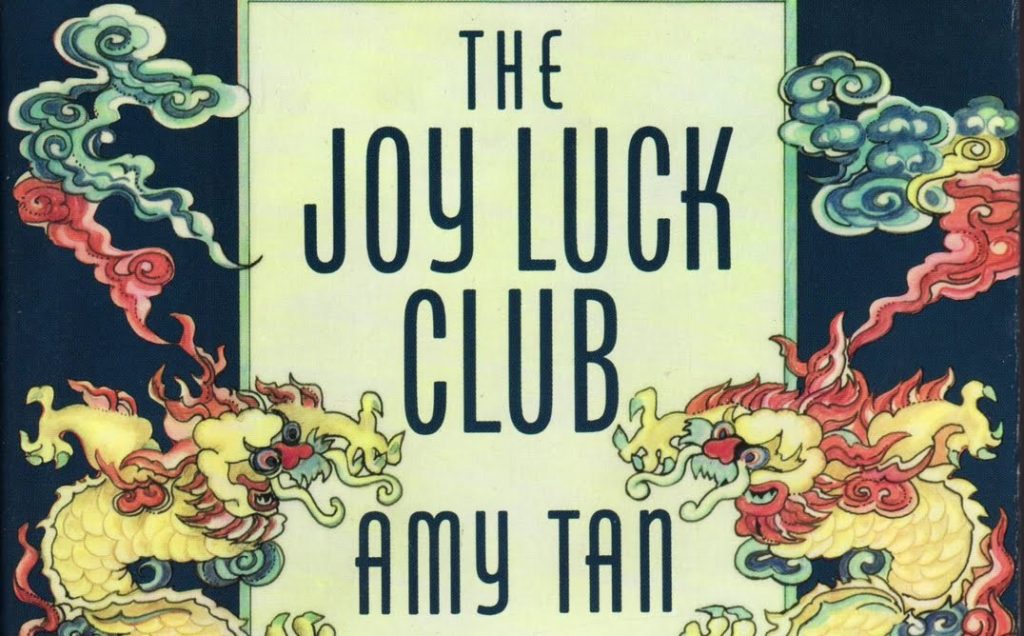The first time I read The Joy Luck Club, I was in middle school and I saw myself–and more importantly, my mother–in its pages. I don’t remember the specific characters, or any lines, or even the stories inside—just that there was a daughter who disappointed her mother and a mother who loved her anyways. I adored this book. I borrowed every Amy Tan novel my library owned. I returned them all, weeks later, unread. The magic of Joy Luck was singular.
My mother tells me that if I want the novel I’m writing to be a bestseller in America, I should put in a couple of ghosts. Americans love ghosts, especially Chinese ghosts. I stammer back that I’m not selling out, and that I will never write about ghosts, Chinese or otherwise. “Remember the fortune cookies you used to get all the time?” she says. “They said, ‘Listen to your mother.’” “I only got that fortune three times,” I reply. “Three times in one year,” she says, wrapping up the conversation.
The second time I read Joy Luck, I was in college and angry. I had to write a Junior Paper—a semester-long project—and the first thesis I proposed was about the “Orientalism” in Amy Tan’s famous novel. By the way, I had never read Orientalism by Edward Said, though I knew just enough about it to have a cocktail party conversation. I also never actually reread Joy Luck. I skimmed through the first chapter and found the language clunky and ornamental. I was embarrassed by the mentions of spirits, of East Winds and Mah-Jong. “My culture and personal history would not be dissolved down to a handful of buzzwords,” I thought passionately and humorlessly. My professor hinted that my critique of Joy Luck’s clichés was in itself a cliché. I changed topics without much second thought.
The few stories I let my mother read she has a hard time understanding. But she tells me, despite how weird my endings and characters are, that she falls in love with me through my prose. Sometimes, I wonder why I let anyone except my mother read my writing. Then I remember that the stories she doesn’t read are the stories that have a mother, and while I am not unkind, I’m also not kind. I want her to know that these stories are my own version of a love letter. I’m telling her that I am watching her, thinking about her, reimagining her, and in doing so, trying to understand her and remember her also. But, then, I let everyone except her read my love letters.
~
During my first year in the MFA, I talk a lot about Joy Luck, about Amy Tan, and Maxine Hong Kingston (who is chockfull of ghosts), and all the other major players building up the Asian American literary cannon. I say things like, “Why does everything tall or thin have to be compared to bamboo?” I talk without respect, without gratitude, and a year in, over coffee with a teacher, I realize what I sound like: a total brat.
Around the same time, I stop laughing every time my mother brings up her fortuneteller friends, her eastern medicine, her classmate who now speaks for the Buddha. She tells me predictions of my future—all charmed, all happy. I have her to thank, she says, because she is blessed, and so all her family will be blessed as well. When she advises me to wear a red belt for the entirety of 2015 (Year of the Goat), because as a Goat, I am extra unlucky this year, I buy a braided string online and tie it around my waist, where it pinches me when I eat too much.
~
A year after I stopped disrespecting my elders, I finally reread The Joy Luck Club. If you do the math, that means roughly two weeks ago. To my surprise, there were no ghosts. I finished the book in three days, and the last page filled me with awe. The book told me what I perhaps knew all along, which is that my mother is my ghost. That my mother is what haunts me and watches me all at once. That sometimes my mother is corny, but I shouldn’t laugh, because she raised me and I owe her everything. That I have been writing about ghosts all along, which means my mother was right.
I will try to reread The Joy Luck Club every year. I will continue to write my mother love letters that she is not allowed to read. I will maybe some day let her read them.
Image: Cover of The Joy Luck Club, by Amy Tan.




